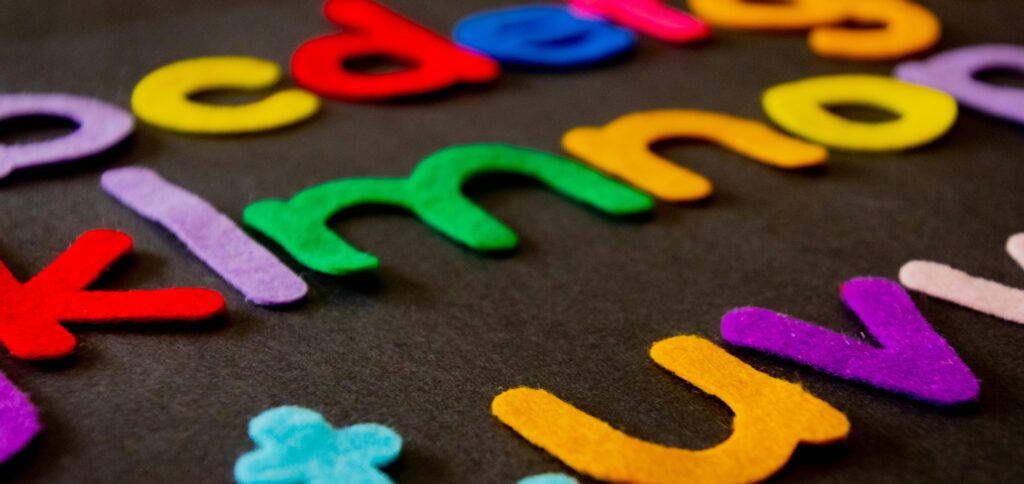
Have you accidentally stepped into the alphabet controversies and found yourself wondering what could be so controversial about teaching the alphabet? I sure have!
My oldest severely dyslexic daughter really struggled to get the alphabet and sounds down. She was 9 before she had it all. It has now come time for my youngest dyslexic daughter to learn her letters and so I have, once again, started digging into the research trying to find some inspiration.
Unfortunately what I have found is more debate than data. Today I thought I would share a bit about the controversies & research I have come across.
DEBATE #1: Should We Even Teach Letter Names?
To me, common sense prevails here. If our kids don’t learn the names of the letters, how could we possibly answer them when they ask us how to spell something? I mean the /k/ sound alone is made with c, k, ck, ch (like chemistry), que (like plaque), and qu (like mosquito)!
There are lots of studies going back to the 1970s to tell us that kids who know their letter names learn to read more quickly. One of the most recent studies conducted in 2010 by Shayne Piasta and Richard Wagner found that preschool children who were taught both letter names and sounds learned to read faster than kids who were just taught letter sounds.
DEBATE #2: Which Comes 1st? The Name or the Sound
Another study conducted by David Share in 2004 found that “letter-name knowledge had a significant impact on letter-sound learning”, which seems to indicate that it is best to teach names first. BUT there is a really important caveat in this study. Not every kid benefited from knowing the letter names. Kids with poor phonemic awareness did not benefit nearly as much from learning letter names first. This is a critical caveat since dyslexic kids have poor phonemic awareness by definition.
It’s important to note that this study is not an outliner. Another study from 2007 conducted by Peter de Jong found phonological awareness had “a strong effect on letter-sound learning”.
So we find ourselves back at the doorstep of phonemic awareness, which is that critical skill of breaking words into sounds that our dyslexic kids struggle with. Phonemic awareness is a topic for another blog (or maybe a whole book!) but let’s get back to our current dilemma.
Several of the top Speech to Text programs advocate teaching sounds first and some suggest that we should not teaching letter names at all because it confuses kids. The research we have reviewed today shows the opposite to be true but it may not apply to kids with weak phonemic awareness.
The only thing we know for sure that we need more research and we need it to be specifically conducted with dyslexic children. In the meantime, we are left with an unsolved mystery and kids who are struggling to learn critical skills.
So what do we do?
We live in the real world; not a controlled research study and in the end what we really need is progress and we’ll take progress wherever and whenever we can get it!
For our kiddos, it is likely that letter sound and letter name knowledge will not develop simultaneously. I know that for our family, one of my dyslexic kids quickly learned the letter names but still struggles with the sounds, while two of them have struggled mightily with the names and had an easier time with the sounds.
Therefore, it seems to me that the real trick is to ensure that the way we teach doesn’t hold kids back in either skill. If, for example, a kiddo knows the sound made by “b” but can’t remember the name, our progress with letter sounds and decoding can’t be held back while we wait for the letter name to come along. On the other hand, a kid that has mastered the letter names but can’t quite master decoding the sounds, can use the letter names as a basis where the letter name has the letter sound in it such as the letter b which has a name that makes the /b/ sound, verses a g, which has a letter name that is pronounced /jee/.
How do we teach these skills to a child who just isn’t catching on? Well in coming blogs, I will be diving into the strategies experts recommend and the results we are having learning the letters and names in my home so stay tuned!